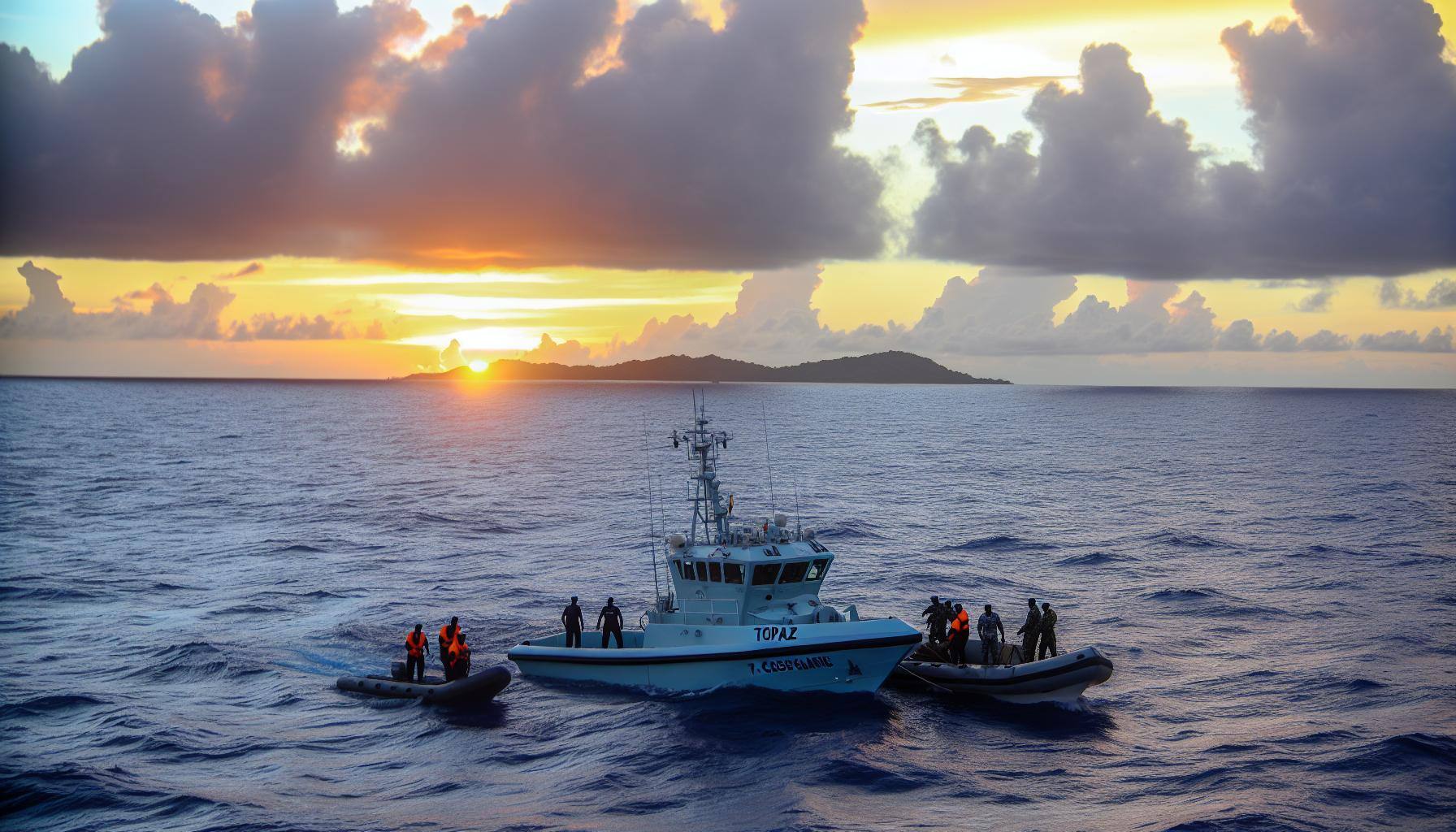Earlier this year, the Seychelles Coast Guard vessel, Topaz, was diverted to respond to a Somali pirate attack on a Sri Lankan fishing trawler near the Seychelles exclusive economic zone.
The encounter occurred near Denis Island, where the pirates opened fire on the Topaz. Despite never having faced such direct aggression, the Coast Guard, supported by Seychelles Special Forces, managed to subdue the pirates within six minutes. The pirates were subsequently arrested by the Indian Navy, which also participated in the pursuit.
Pirate Arrest and Maritime Security
Maj. Hans Radegonde, spokesperson for the Seychelles Defense Forces, described the cautious yet decisive approach taken by the Coast Guard. The incident underscored the increasing threat of piracy near Seychelles waters, marking a resurgence of such activities since December 2023. This resurgence was evident in the rise of piracy incidents, with 33 attacks recorded in the first quarter of 2024, up from 27 in the same period the previous year, according to the International Maritime Bureau.
The successful interception and arrest of the pirates highlighted the effective collaboration between the Seychelles Coast Guard, Indian Navy, and the European Union’s Maritime Security Centre – Horn of Africa (MSCHOA). Francis Milroy Perera, owner of the attacked Sri Lankan vessel, expressed profound gratitude for the timely intervention that saved both his sailors and the vessel.
Significance of Small States in Maritime Security
Maritime security experts argue that the Seychelles Coast Guard’s actions demonstrate the significant impact small states can have in countering piracy when well-trained and coordinated. This incident illustrates the importance of information sharing and coordinated efforts in the western Indian Ocean. Support from MSCHOA and the Combined Maritime Forces, a U.S.-led maritime security partnership, is crucial for the continued success of these operations.
Experts also emphasize the need for small states to value their maritime security, recognizing the economic benefits of their blue economies, and to utilize external security support efficiently. The role of the Regional Coordination Operations Center (RCOC) in Seychelles has been pivotal in organizing regular maritime security operations, coordinating efforts to combat sea crimes for 21 countries.
Enhanced Regional Coordination
The RCOC has expanded its area of responsibility, enhancing its ability to coordinate effective deterrence against piracy. Maritime expert Ian Ralby highlighted the importance of pairing operational activities on the water with legal measures to ensure pirates are held accountable, not merely caught and released.
Additionally, the Regional Maritime Information Fusion Centre in Madagascar collaborates with the RCOC, sharing critical information with local, regional, and international allies. This collaboration ensures that even if a threatened country cannot interdict a maritime threat, it can request assistance from the RCOC, enhancing overall maritime security in the region.
Conclusion
The Topaz incident underscores the critical role of small states like Seychelles in combating piracy through well-coordinated efforts and international cooperation. Continued support from regional and international partners, coupled with robust information sharing and legal accountability, is essential to effectively counter the resurgence of Somali piracy. The collaborative efforts of entities like the RCOC and the MSCHOA exemplify the potential for successful maritime security operations, safeguarding the economic and security interests of the region’s nations.





